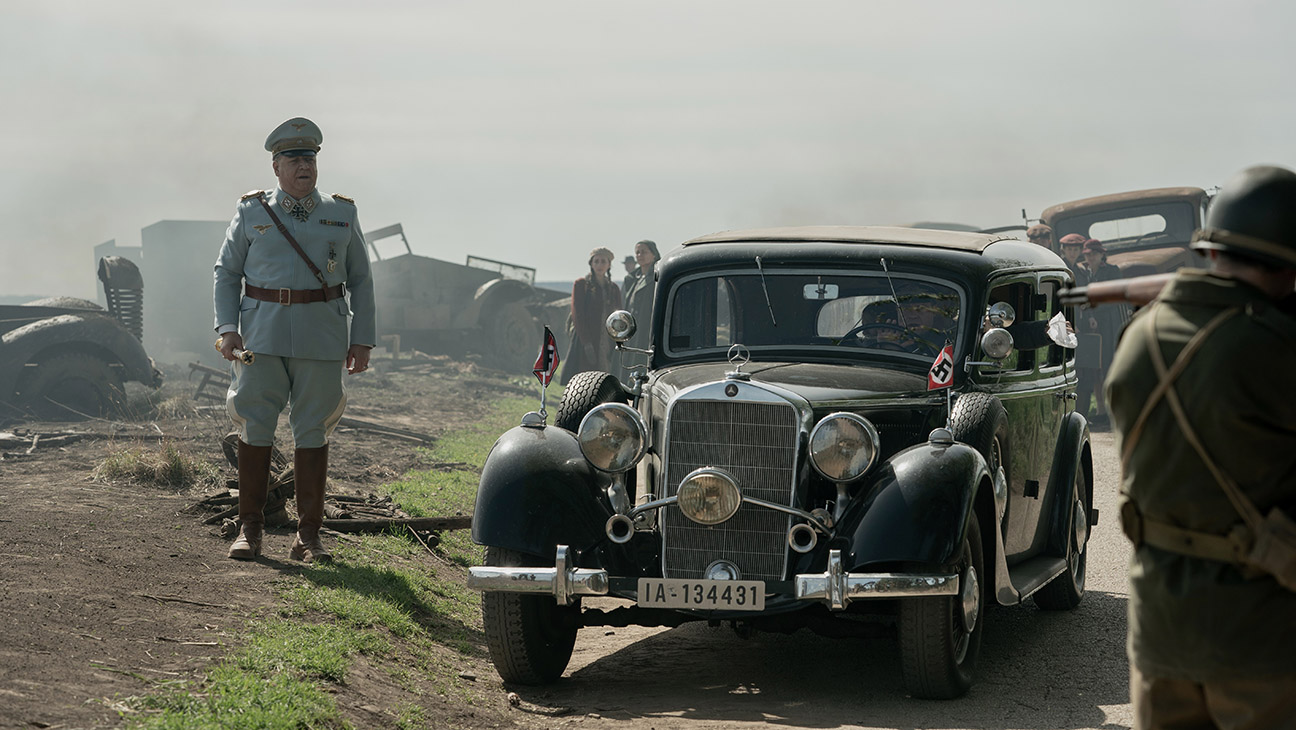In the days immediately following the end of World War II in Europe, a U.S. Supreme Court justice grappled with the best way to ensure those surviving members of Hitler’s Nazi regime were held accountable for the atrocities committed under their watch. While Congress was pushing for an expedited execution rather than a trial, chief U.S. prosecutor Robert H. Jackson instead argued for an international tribunal, despite there being no legal precedent for proceedings against a country that never attacked the U.S.
Jackson’s dogged determination — leading to the first courtroom trial to address crimes against the peace of the world — and the ensuing psychiatric assessment of the accused, most notably former Reichsmarschall Hermann Goring, set the stage for what was to become known as the Nuremberg trials.
Nuremberg
The Bottom Line
Powerfully directed and performed.
Venue: Toronto International Film Festival (Gala Presentations)
Release date: Friday, Nov. 7
Cast: Russell Crowe, Rami Malek, Michael Shannon, Leo Woodall, Richard E. Grant
Director, screenwriter: James Vanderbilt
Rated PG-13,
2 hours 28 minutes
Eighty years later, those historical events have been lent a chilling relevance in the hands of writer-director James Vanderbilt, whose compelling depiction of what historian Hannah Arendt would later call “the banality of evil” resonates in the face of more recent developments around the world.
Backed by a roster of powerhouse performances led by Russell Crowe, Rami Malek and Michael Shannon, the commanding production looks like it could be an award-season contender; the rapt TIFF audience at its world premiere screening rewarded it with a rare, sustained standing ovation. Expect that buzz to grow in the weeks leading up to the Nov. 7 Sony Pictures Classics release.
Taking his inspiration from the 2013 Jack El-Hai book, The Nazi and the Psychiatrist, which explored the complex relationship between American Army psychiatrist Douglas Kelley and his 22 patients awaiting trial as war criminals, Vanderbilt crafts a particularly cunning game of cat-and-mouse between the most notorious of those patients, Goring (Crowe), and the intrepid shrink (Malek). While Jackson (Shannon) assembles the pieces of an international tribunal involving the U.S., England, France and the Soviet Union, Kelley is charged with assessing the mental state of Goring and his fellow prisoners, in a bid to sniff out potential suicides ahead of their being brought to justice.
As Kelley devises his plan to build an element of trust with his star patient, in a groundbreaking effort to “psychologically define evil,” Goring proves equally calculating. Kelley notes his “inflated sense of self,” an evident narcissism doesn’t prevent Goring from launching his own charm offensive. In Crowe’s capable hands, there isn’t a word of dialogue that doesn’t carry its own carefully measured weight.
Unburdened by a conventional three-act structure, Vanderbilt is free to build the escalating tensions between Goring and Kelley much in the compelling way sparring characters interacted in his acclaimed script for David Fincher’s Zodiac. Crowe and Malek uniformly deliver what are among their best performances, captured by cinematographer Dariusz Wolski’s tight, constantly probing close-ups, which allow for precious little wiggle room.
The always reliable Shannon is equally effective in the role of the steadfast lead prosecutor, and the supporting performances are uniformly powerful — especially Leo Woodall (best known for the second season of The White Lotus) in the role of Sgt. Howie Triest, an American soldier who served as a German interpreter for Kelley’s interactions, and whose own backstory is later delivered in a poignant monologue that will unlikely leave a dry eye in the house.
Also effective are Richard E. Grant in the role of calm, cool and collected British chief prosecutor David Maxwell-Fyfe and John Slattery as the U.S. Army colonel and Nuremberg prison commandant Burton Andrus, tasked with, ironically, keeping his prisoners alive until they could be sentenced to death.
Where the 1961 Stanley Kramer classic Judgment at Nuremberg concerned itself with a different aspect of the trials, Vanderbilt’s film doesn’t actually arrive at the courtroom until much later in the proceedings. Still, it doesn’t shy away from the inclusion of extensive, horrific archival footage taken in concentration camps offered into evidence by Jackson. Although familiar to many, those disturbing images are certain to bring the Holocaust into sharper focus for those who appear to have forgotten the lessons about the atrocities that the world had once vowed never again to repeat. Vanderbilt’s commanding Nuremberg couldn’t have arrived at a more consequential time.
